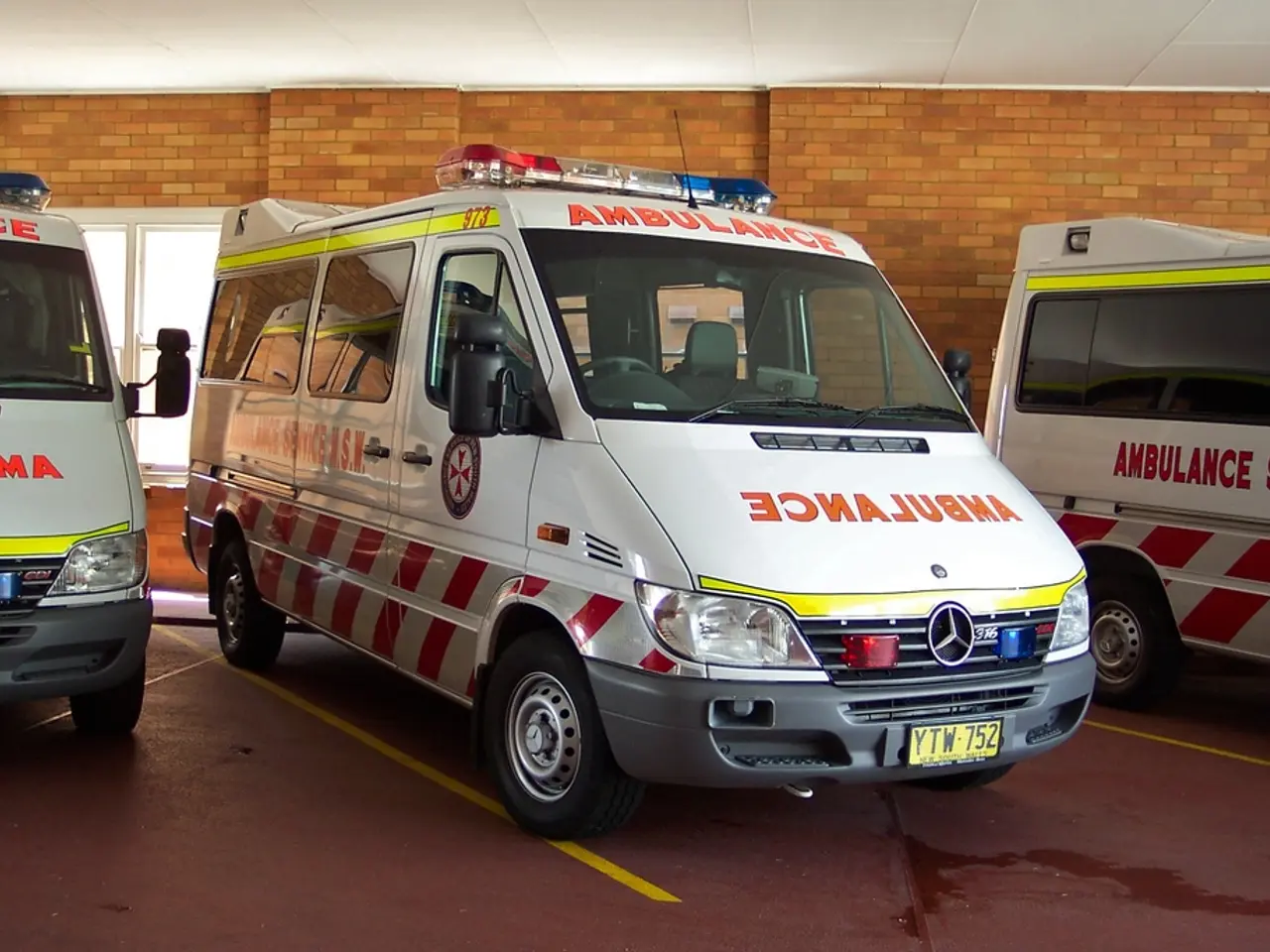Gaza hospitals teeter on the brink due to restricted medical supplies under Israeli embargo
The Gaza Strip, home to a population of 2.3 million, continues to grapple with a dire humanitarian crisis. According to Gaza health authorities, at least 60,430 Palestinians have been killed, and 148,722 wounded in Israeli attacks since October 2023 [1]. The crisis has been deepened by restricted access to food, water, and medical aid due to Israel's actions.
Gaza's hospitals are struggling to treat the wounded, with only 16 partially operational hospitals (5 public and 11 private) [2]. Fuel restrictions still in place have caused medical devices powered by generators to fail, endangering patients dependent on life-saving equipment. The situation is so dire that deaths are occurring not only from war but also from preventable diseases and untreated injuries [3].
International aid efforts are underway to alleviate the crisis. A convoy of 19 trucks carrying medicine and supplies entered Gaza on Aug. 1-2, with support from the World Health Organization (WHO) and funding from the United Arab Emirates (UAE) [4]. Air drops of food and medical supplies have continued in central Gaza, but supplies are scarce.
The WHO Director-General, Tedros Adhanom Ghebreyesus, warned of mass starvation, malnutrition, and disease in Gaza on July 29, and has renewed its call for large-scale food and medical aid for Gaza [5]. Human rights organizations and medical groups have repeatedly raised concerns about the rapidly deteriorating situation of Gaza's civilian population, especially the injured and chronically ill, due to a lack of medicine and medical equipment [6].
The World Health Organization (WHO) and partners have facilitated the medical evacuation of thousands of critically ill Palestinians, including children, but the daily rate of patients leaving Gaza for treatment has drastically dropped from 50-100 per day before October 2023 to about 11 now [4]. Over 14,800 are estimated to urgently need medical treatment outside Gaza.
Organizations like Doctors Without Borders (MSF) are providing care inside Gaza for severe physical injuries, chronic diseases, mental health trauma, and hunger-related conditions despite attacks on healthcare facilities and massive infrastructure destruction [2]. Since October 2023, Israel's blockade and military strikes have targeted hospitals, schools, and shelters in Gaza.
More than 20,000 children have been treated for acute malnutrition since April 2025, and deaths from hunger have been reported, including at least 16 children under five since mid-July [1]. The Integrated Food Security Phase Classification (IPC) projects by September that half a million people could face catastrophic hunger, including starvation and death. Aid agencies emphasize the need for urgent, large-scale food aid and nutrition supplies to prevent mass starvation [4].
UN officials and aid groups highlight the imperative to rapidly increase humanitarian aid shipments and allow commercial cargo entry, warning that waiting for official famine confirmation before acting is "unconscionable." The healthcare system is collapsing as caregivers themselves suffer under the siege conditions [7].
In summary, while efforts exist on multiple fronts—medical evacuations, emergency care, and food aid—the urgent needs in Gaza are for:
- Massive influx of food and nutrition supplies to address acute malnutrition and widespread starvation.
- Medical supplies and personnel to treat war injuries, chronic illnesses, and malnutrition conditions.
- Unhindered humanitarian access to sustain lifesaving services amid infrastructure destruction and siege.
- Increased medical evacuation capacity for critical cases needing treatment outside Gaza.
The scale of the crisis is catastrophic due to two years of conflict, infrastructure destruction, and a strict blockade severely limiting aid delivery [1][2][4][5]. The crisis requires immediate attention and action to prevent a wider catastrophe in Gaza.
- Despite international aid efforts, Turkey's health authorities have expressed concern about the rising medical-conditions and preventable diseases in Gaza, exacerbated by the ongoing conflict and blockade.
- In the midst of the political turmoil in Gaza, the general-news outlets are increasingly focusing on the science-based solutions needed to address the health-and-wellness crisis, such as the urgent need for medical supplies and personnel.
- As war-and-conflicts persist in Gaza, the international community should prioritize addressing the immediate needs of the population, including provision of food and nutrition supplies, medical aid, and unhindered humanitarian access for long-term sustainability.




